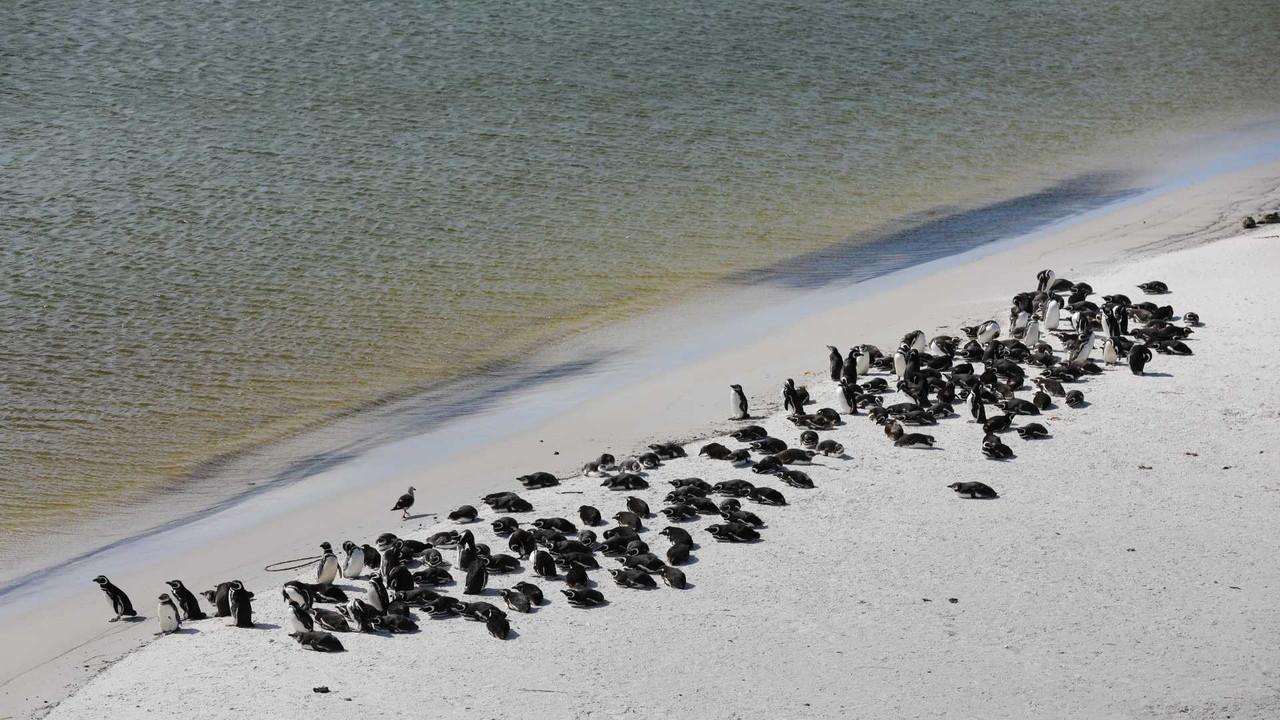Falkland Islands (Malvinas)
Benefits and Entitlements Overview
Learn about mandatory and optional employee benefits in Falkland Islands (Malvinas)

Mandatory benefits
Employees in the Falkland Islands (Malvinas) are entitled to a set of mandatory benefits as outlined by legislation. These benefits include paid leave, social security, and other mandatory benefits.
Paid Leave
Employees are entitled to a minimum of 30 days of paid annual leave per year. There are also nine public holidays throughout the year in the Falkland Islands, and employees are entitled to paid leave on these days.
Social Security
The Retirement Pension Scheme (RPS) is a compulsory state-run pension plan that provides a minimum level of retirement income for those who contribute. Employees aged 17 to the state pension age (currently 64) earning above a weekly earnings threshold must contribute to the RPS. Contributions are split between employers and employees, with the current rate being £40.60 per week for employees in 2023.
Other Mandatory Benefits
All employees are entitled to a lunch break of at least one hour and a sufficient rest period in between working days, typically a minimum of 12 hours. Overtime work must be compensated at a pro-rata rate of the employee's salary, depending on the additional hours worked outside their contracted hours. Employees can opt out of overtime hours if agreed upon in their employment contract.
Optional benefits
In the Falkland Islands (Malvinas), many employers offer additional perks to attract and retain talent, beyond the mandatory benefits. Here are some commonly offered optional benefits:
Relocation Allowance
Due to the remote location of the islands, employers may offer relocation allowances to assist with moving costs for employees relocating from outside the Falklands. This can include covering the cost of shipping belongings and travel expenses for the employee and their dependents.
Flights
Employers may provide flights to and from the Falkland Islands for employees and their eligible dependents at the start and end of their contract. Some contracts may even offer mid-contract flights for longer stays.
Housing
Finding suitable housing can be challenging in the Falklands. Employers may offer assistance by providing housing or a housing allowance to help employees with rent.
Starter Pack
To ease the settling-in process, some employers may offer a starter pack with basic household goods and groceries upon arrival in the Falklands.
Salary
While not technically a benefit, salaries in the Falklands tend to be higher compared to similar positions elsewhere due to the cost of living and remoteness of the location.
Other Potential Benefits
Depending on the company and industry, additional benefits may include performance-based bonuses or profit-sharing schemes offered as an incentive for exceeding expectations or contributing to company success.
Health insurance requirements
In the Falkland Islands (Malvinas), there is no compulsory health insurance requirement for employees. However, due to the geographical remoteness of the islands and the limited medical facilities available, health insurance is strongly advised for everyone residing and working there.
Limited Medical Facilities
The Falkland Islands have only one hospital, situated in the capital, Stanley. This hospital offers a good standard of care, but for complex medical issues, evacuation to South America or the UK may be necessary.
High Cost of Medical Evacuation
Medical evacuation can be extremely costly, often running into hundreds of thousands of dollars. Without sufficient health insurance, these costs can cause financial ruin for employees and their families.
Travel and Medical Insurance Recommended
The Falkland Islands Government advises that all visitors and residents, including employees, secure comprehensive travel and medical insurance. This insurance should cover, at a minimum, $2 million USD for medical evacuation.
Retirement plans
The Falkland Islands (Malvinas) offer a two-pronged approach to retirement planning, with a public scheme and the option for private plans.
Mandatory Retirement Pension Scheme (RPS)
The RPS is compulsory for most employees aged 17 to state pension age (currently 64) who earn above a weekly earnings threshold set by the government. Self-employed individuals are also required to contribute. The Falkland Islands Government administers the RPS. Contributions are made via salary deductions, with the current rate being £43.08 per week in 2024, split equally between employers and employees.
The RPS offers a basic level of retirement income upon reaching state pension age. The amount is determined by the number of contributions made throughout an employee's working life. To qualify for a full pension, an employee must make at least 2,200 contributions. The current standard full pension rate is £177.78 per week. Individuals with between 250 and 2,200 contributions will receive a reduced pension based on their contribution history. People who are no longer employed or have left the Falklands can make voluntary contributions to reach the minimum threshold for a partial pension.
Optional Private Pension Plans
Private pension plans are not mandatory in the Falklands, but some employers may offer them as a voluntary benefit. These plans can be set up by individual companies or through group plans offered by insurance companies. They vary in terms of contributions, benefits, and investment options. Benefits can include a lump sum payment or a monthly pension upon retirement. Some plans may offer additional benefits like disability coverage or life insurance.
Choosing a Retirement Plan
The RPS provides a basic level of income security in retirement. However, due to the potentially low payout, it may not be sufficient to maintain one's standard of living in the Falklands. Private pension plans offer the potential for a higher retirement income. Employees considering this option should carefully review the details of the plan, including contribution requirements, investment options, and potential fees.
Additional Considerations
The cost of living in the Falklands can be high, so a comfortable retirement may require additional planning and saving beyond the RPS. Consulting with a financial advisor familiar with the Falklands' retirement landscape can be beneficial for employees planning for their future.